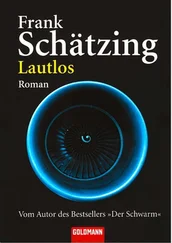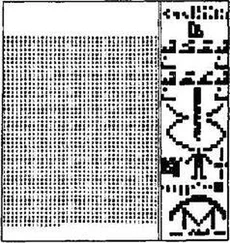And yet—
Startled by the announcement by the US that they planned to send astronauts to the Moon again by 2020, the whole world had suddenly been galvanised into frantic activity. Whatever there was to be fetched back from the Moon, the field wasn’t to be left open for America again, particularly since this time it seemed to have less to do with the symbolism of flags and footprints than with a tangible policy of economic supremacy. The European Space Agency offered technological support. Germany’s DLR fell in love with the idea of having its own moon base. France’s ESA carthorse EADS preferred a French solution. China hinted that in a few decades moon-mining would be crucially important to the national economy, explicitly the mining of helium-3. Roskosmos was also flirting with this quarrying idea, and so were the Russian companies Energia Rocket and Space Corporation, which had announced the construction of a moon base by 2015, whereupon India had immediately sent a probe with the beautiful name of Chandrayaan-1 into the polar orbit of the satellite to see how exploitable it was. Given the clear undertone of the Bush doctrine of going it alone, representatives of Russian and Chinese space travel authorities met for discussions about joint ventures, Japan’s JAXA entered the game: everyone was in a terrific hurry to court La Luna and make sure they got hold of some of her legendary treasures, as if it were enough simply to go there, dig the stuff up and scatter it over the home territory. Each prognosis outdid the last in terms of boldness until Julian Orley set out his clear conditions.
The richest man in the world had become involved with the Americans.
The result was, to put it mildly, radical. No sooner had international competition for extraterrestrial raw materials begun than it had fizzled out again, as the victor was, thanks to Orley’s decision, quite clear: a decision made less for reasons of sympathy than because the notoriously cash-strapped NASA turned out to have more money and a better infrastructure than all the other space-travelling nations put together. Apart from China, perhaps. There, during the nineties, ambitions to soar to cosmic greatness had become apparent, admittedly with a modest self-evaluation and an overall budget that came to a tenth of the USA’s, but which were driven by patriotism and claims to world-power status. Then, after one Zheng Pang-Wang had begun financing Chinese space travel in 2014, their budgets and aspirations had become almost equal; there was just a lack of know-how – a shortcoming that Beijing thought it would be able to make up.
Zheng, high priest of a globally active technology company whose greatest ambition lay in putting China on the Moon even before the USA, and making the exploitation of helium-3 a possibility, was often described in the media as the Orley of the East. In fact, like the Englishman he had not only immense wealth but also an army of high-class builders and scientists at his disposal. The Zheng Group went to work feverishly on the realisation of a space elevator, probably in the knowledge that Orley was doing the same thing. But while Orley attained his goal, Zheng didn’t solve the problem. Instead, the group managed to build a fusion reactor, but again they fell behind because Orley’s model worked more safely and efficiently. China’s ruling Communist Party grew nervous. Zheng was urged finally to demonstrate some success, if necessary by making long-nose an offer he couldn’t refuse, so old Zheng went for dinner with Orley and told him that Beijing wanted to cooperate in the near future.
Orley said Beijing could kiss his butt. But would Zheng share another bottle of that wonderful Tignanello with him?
Why not share everything? asked Zheng.
Like what?
Well, money, a lot of money. Power, respect and influence.
He had money of his own.
Yes, but China was hungry and extremely highly motivated, far more than slack, overweight America, which was still reeling from the financial crisis of 2009, so that there was something doddery about everything it did. If you asked an American about the future, in seventy per cent of cases he would see something profoundly terrifying about it, while in China everyone faced the coming day with a cheerful heart.
That was all well and good, said Orley, but shouldn’t they move on to an Ornellaia?
It was pointless, and certainly all mining plans with traditional rocket technology were economically unproductive, and condemned to throw Chinese space travel into the red. But with the defiance of a foot-stamping child, the Party decided to do just that, trusting in the hope that Zheng and the great minds of the Chinese National Space Administration would soon be back in the running. And because America had shown no scruples about letting its mining machines loose on the very part of the Moon where, according to the general geological view, there was a higher-than-average deposit of helium-3, a border area of the Mare Imbrium, the components for a mobile Chinese base and solar furnaces on caterpillar tracks were transported to that very spot, right next to their unloved competitor, and the Chinese began their own mining operation on 2 March 2023. America acted first amazed, then delighted. China was cordially welcomed to the Moon, there was talk of a global legacy and an international community, and no one worried about the newcomer’s touching efforts to squeeze its pathetic portion of helium-3 out of moon dust.
Until 9 May 2024.
Over the past few months both nations had successively stepped up their mining operations. On that day a rather heated discussion took place between the American moon base and Houston. Following immediately on from this, the alarming message reached the White House that Chinese astronauts had deliberately and with unambiguous intentions crossed the mining boundaries and annexed American territory, and that the Americans felt provoked and threatened. The Chinese ambassador was summoned and accused of border violations, and ordered to re-establish the status quo forthwith. The Party asked for an enquiry into what had happened, and on 11 May declared itself unaware of any guilt. Without officially negotiated borders there could be no border violation. Broadly speaking, Washington must know what the world thought of the way that America, in defiance of all clauses in the space treaty in general and the lunar treaty in particular, had invented facts; and how had anyone ever come up with the abstruse idea of crossing that heavenly body – which, according to those treaties, belonged to no one – with borders? And did they really want to have that tiresome discussion all over again, instead of contenting themselves with their own superiority, which was, after all, plainly visible to anyone with eyes to see?
The USA felt snubbed. The Moon was a long way away, no one on Earth could say exactly who was strolling about on whose territory, but on 13 May the moon base announced the arrest of the Chinese astronaut Hua Liwei. The man had been sniffing around on the territory of the American mining station, an automatised facility, which was why he could hardly have shown up there to talk about the moon weather over tea and cakes. That Hua was also commander of the Chinese base, a highly decorated officer who was given no opportunity to provide his version of events, did nothing to defuse the situation. Beijing raged and protested vehemently. At the Ministry for State Security, they outdid themselves in describing the martyrdom that Hua would have to endure in the remote polar base, and made demands for his immediate release which Washington studiously ignored, whereupon Chinese associations, officially this time, invaded American territory with vehicles and mining robots, or at least that was how it was reported. In fact, only one unfortunate small robot was involved, which accidentally rammed an American machine and completely wrote itself off. There could have been no question of manned vehicles, given the isolated Chinese Rover roaming around on its own, and on closer inspection the feared associations proved to be the clueless, disorganised remnants of the base staff, two women who had had to simulate an invasion because of political arm-twisting, while the American astronauts at the Pole didn’t understand why they had had to take poor Hua prisoner, and put all their efforts into at least giving him a good time.
Читать дальше












